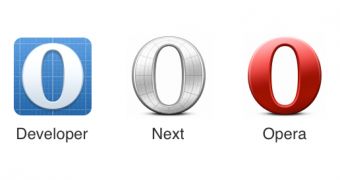When the new Chrome-based Opera was first released, the Norwegian browser maker promised a fast development pace and three distinct release channels, similar to Chrome's and Firefox's. The stable channel is self-explanatory, as this is where the regular Opera is to be found.
Opera Next is the equivalent of the Chrome and Firefox Beta. Now, Opera is releasing the first builds in the "Developer" channel, or stream as Opera calls it, the equivalent of the Dev and Aurora channels.
"This stream is our bleeding edge development; features will be piloted, and may be shelved, taken back to the drawing board, or taken forward to the Opera Next stream - feature complete, but potentially buggy," Opera explained.
Opera 17 is seeing first light in the Developer channel, but only for Windows and Mac, as did Opera 15 and 16. Linux support has been promised, but it looks fans will have to wait a bit longer.
There are plenty of new features in Opera 17, though the list isn't probably as long as some fans might have expected.
There are now more startup options, and you can choose between "last session," "speed dial," or a list of fixed pages. Pinned tabs have also been enabled, thought that's the extent of the new tab management features, something which Opera promised is on the "to-do" list.
There are more extension APIs as well, so Opera-specific extensions now have access to more features and data, such as bookmarks, commands, omnibox, or webNavigation. Finally, the new Opera is also getting some rudimentary search engine management features, and it's now possible to provide keywords for alternate or custom search engines.
There are a few more new options and changes that aren't yet stable enough to be enabled by default, such as theme support, getUserMedia support, and HiDPI.
Now that the three release channels are all in place and that Opera engineers are coming back from their vacation, the pace should pick up a bit and future versions should come with longer lists of new features.

 14 DAY TRIAL //
14 DAY TRIAL //